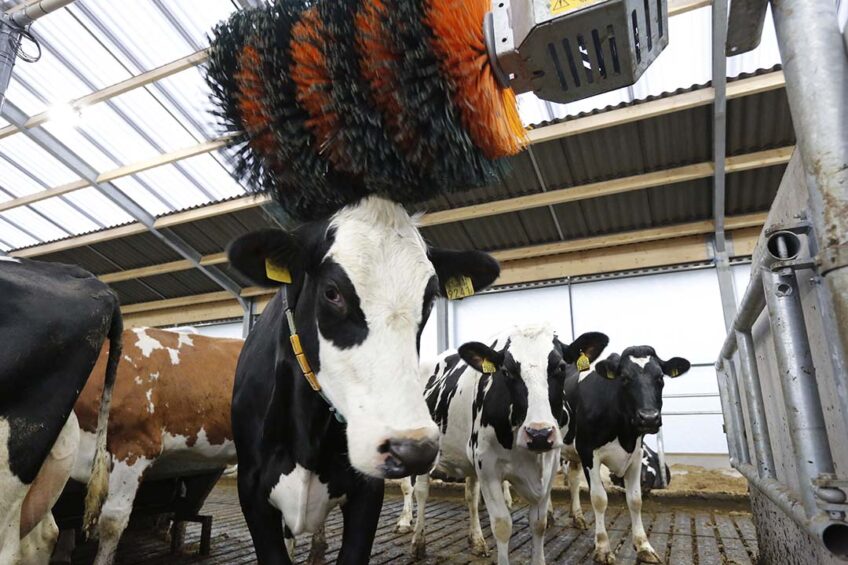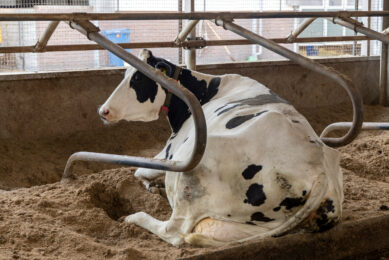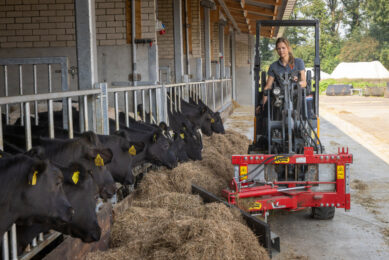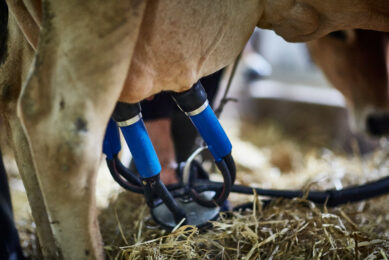Researchers assess environmental enrichment for dairy cows

Housed dairy cows interact with novel environmental enrichment, but they spend more time using an outdoor yard than a new object, according to research.
Consumers, industry and animal welfare scientists are becoming increasingly focused on the importance of providing animals with positive opportunities through environmental enrichment, but apart from brushes, opportunities in the dairy sector have been limited.
Resources which animals habituate too rapidly may be economically unviable and provide limited welfare benefits.
Researchers from the University of Nottingham wanted to assess the utility of simple point source enrichment for housed dairy cows to evaluate how cows habituate to enrichment over time and whether they show a preference for different enrichments.
Novel object for dairy cows
A preliminary experiment provided 2 groups of dairy cows (n=71) with continuous access to a novel object in the home pens for 3 weeks. In a further experiment, 2 groups of cows (n=75) were provided with the same novel object alongside continuous access to an outdoor concrete yard for 9 weeks. Interaction with enrichment was quantified using sampled continuous 24-hour periods of video footage.
Most cows continued to use both resources throughout the study. After 2 months, the proportion of cows that continued to use the object and the outdoor yard was 0.88 ± 0.01 and 0.96 ± 0.02 per day. Cows spent on average 2.72 ± 0.37 minutes per day interacting with the novel object by the end of the trial, comparable to previously published data quantifying brush use in cows.
The scientists, led by Alison Russell of the School of Veterinary Medicine and Science, identified significant variability in the extent of habituation between cows. Although most declined their active utilisation of enrichment to some extent, one quarter alternatively increased the time they spent using enrichment by the end of the study.
Linear models revealed a significant positive relationship between how much time individual cows used enrichment when initially provided and the extent to which they habituated to it by the end of the study (P<0.05), with the highest users of enrichment initially showing the greatest decline in use over time.
More time outside
Cows spent more time outside at 72.26 ± 5.13 minutes per day (P<0.05) than using a novel object after 2 months. The results indicate that housed dairy cattle will utilise additional and novel forms of enrichment if provided, suggesting their availability is beneficial.
Cows’ habituation responses to enrichment appears to not be consistent at group level. The provision of greater opportunities for environmental enrichment should therefore be considered for dairy cows alongside evaluation of their use at individual level.
*The research is published in the journal Applied Animal Behaviour and Science: Housed dairy cows utilise varied environmental enrichments and show diverse inter-individual variation in habituation, ScienceDirect
Join 13,000+ subscribers
Subscribe to our newsletter to stay updated about all the need-to-know content in the dairy sector, two times a week.










